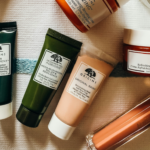Succession fans are sad inside.
No offense. It’s just data.
We tried earnestly to watch it. On paper, it’s right in Tara’s and my wheelhouse. We devour boardroom and corporate dramas – like the recent wave of entrepreneurs-gone-awry series about WeWork, Uber, Theranos, and Madoff.
We made it through three Succession episodes – our customary beta – then bailed hard. People have literally yelled at me about it.
I just can’t enjoy a show without a single likeable or redeemable character – Succession has zero – no matter how well written or acted it might be. Life is too short to be that cynical.
I’m way more of a Ted Lasso guy – obsessed with it, actually. Talk about a show our divided world needed at exactly the moment it came along. Give me positive messages, personal improvement, love, bromance, and gratuitous f-bombs, all day.
I’d been wondering what this all said about me, until I remembered I have the biggest, fastest, and most powerful survey tool in history at my fingertips. So, I asked a representative sample of my fellow Americans this question:
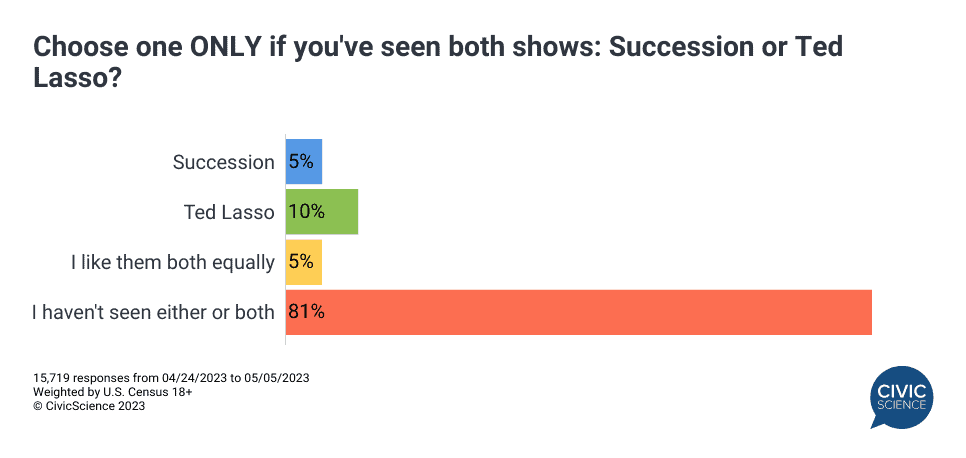
The goal was to identify people who’ve watched both – so they could make a fair judgment. Among that group, Lasso is twice as popular, because it should be. For people who like both equally, I’ll allow it.
Demographics among Lasso and Succession fans were surprisingly similar – particularly age, income, race, and education – with the one exception that Gen Z adults over-index as Lasso fans. I would’ve bet higher income people preferred Succession, but no. Men are slightly more likely to over-index as Lasso fans and city dwellers are slightly more likely to over-index as Succession fans. After that, things get interesting.
First, there’s the narcissism. Forty-eight percent of Succession fans say they’re more physically attractive than their peers, compared to just 40% of Lasso fans. Notably, Successionites are 2x more likely to say they’re less physically attractive than peers, compared to Lassoites – who perhaps just don’t judge themselves against others all that much.
As for emotional well-being: Succession fans are nearly 50% more likely than Lasso fans to say they’ve felt ‘very strongly’ sad over the past week, over 2X more likely to say they’ve felt ‘very strongly’ stressed, and 12% more likely to say they suffer from anxiety or depression. Related, Successionites are 20% more likely to be addicted to their digital device and 2X more likely to say they use cannabis daily. We wrote lots more about it here.
Anyway, I’m glad we stopped watching Succession.
It apparently makes people really unhappy.
Here’s what we’re seeing:
Unhappy people spend differently, too. As I’ve continuously beat the drum about the relationship between emotional well-being and consumer behavior in the post-COVID era, our team has gone deeper and deeper in their analysis. Fortunately, they just keep proving the point. In a recent study of personal consumption across 364 categories, we found that over half (194) closely correlated with shifts in our Well-Being Index. In other words, when our WBI went up, so too did spending in those categories month to month, and vice-versa. See the Top Ten most correlated industries below (yes, it works for brand-level too, but if you think I’m giving that away for free, you’re crazy). Incidentally, our WBI hit its highest numbers in over 15 months last week. Good stuff.
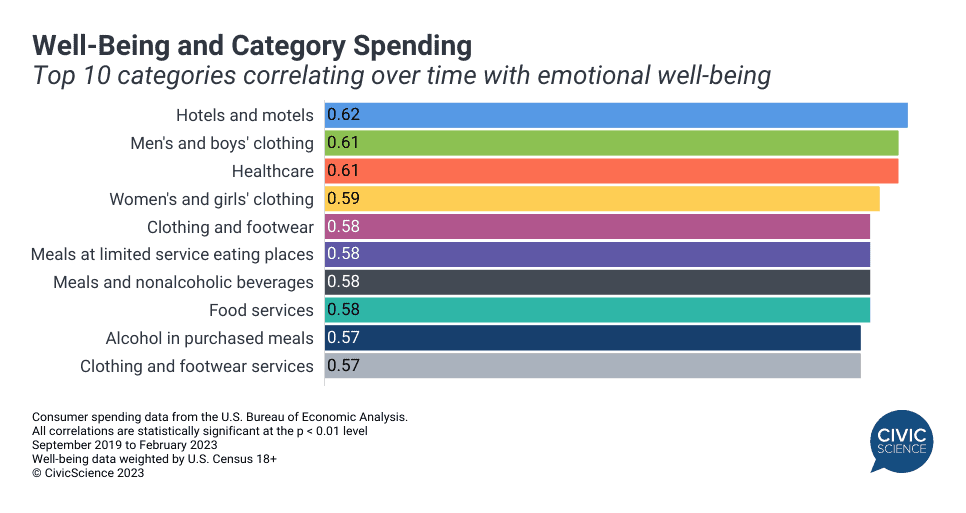
Scripted TV show lovers are conflicted about the current writers’ strike. Fortunately for fans of Ted Lasso and Succession, production of the current (and likely last) seasons wrapped before the Writers Guild took their quills and went home. The walkout hit late-night talk TV first, which won’t cause a massive protest, if only because a mere 9% of U.S. adults watch that genre daily anyway. The big kerfuffle will come when scripted TV shows go dark in the coming months, if the strike hasn’t been resolved. What’s interesting is that scripted TV viewers are the most likely group of consumers to support labor unions. We’ll see if that support gets tested.
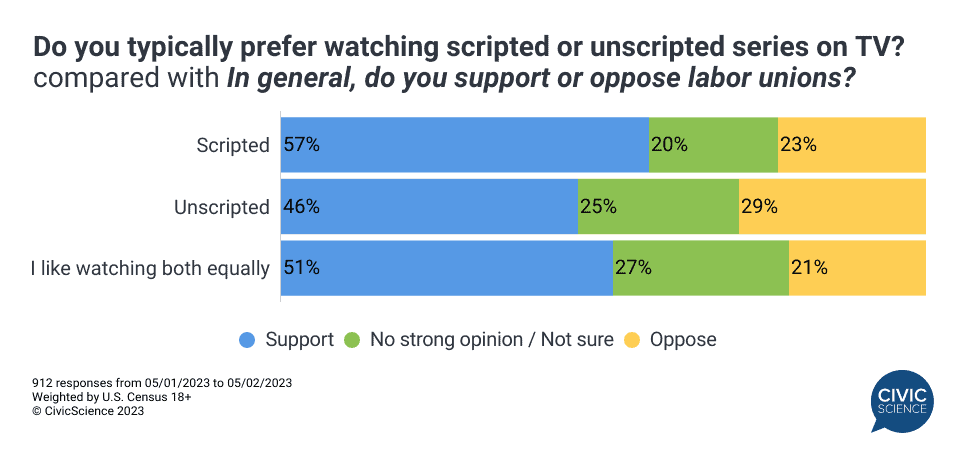
The economy doesn’t seem to be impacting travel intent, though people might be looking for ways to save a few pennies. The percentage of Americans who say they plan to travel in the next month sat at 56% by the end of April, just a single % point less than the same time last year. Those who say they’re cutting back on travel spending are planning to hit the road at a higher rate YoY. One possible interpretation is that even people who are feeling economic headwinds need to get away more than usual. We’ll likely just see lower dollars per trip, with people driving instead of flying, or staying with friends and family. I also thought the relationship between in-person work and travel was interesting.
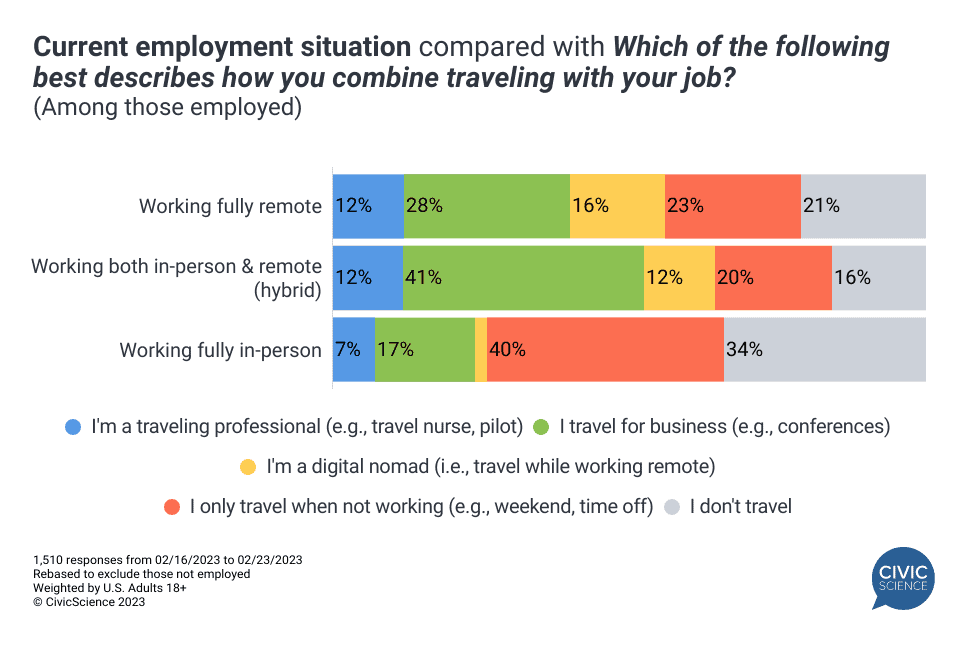
Hispanic Americans are a brand marketer’s dream. We published some of our latest data on retailer brand favorability among U.S. Hispanics this week and the numbers were fascinating. For starters, across nearly every retailer we examined, brand affinity among Hispanics was higher than among non-Hispanics (Amazon is the one exception, yet still the most popular among Hispanics overall). IKEA and Macy’s saw the biggest differences in big-box and department store retail, Lululemon in sports/athleisure, H&M in casual, and Gucci in luxury. Hispanics are also more likely to make purchases based on social media influencers and to be influenced by digital ads.
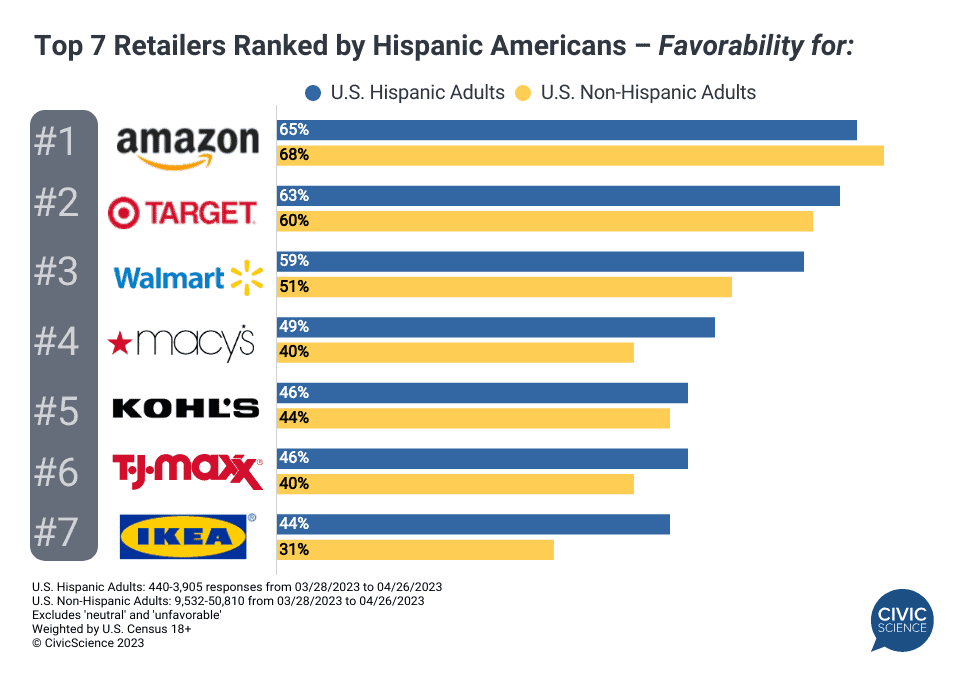
Kids make me sick. They make us all sick. In our 3 Things to Know this week, we looked at the prevalence of different communicable illnesses among people with kids at home and those without. If you have (or have ever had) a bunch of disgusting petri dishes running around your house, you already know the results. We also looked at why younger people are more willing to take medications off-label and how trust in psychiatrists and other mental health practitioners varies widely by race.
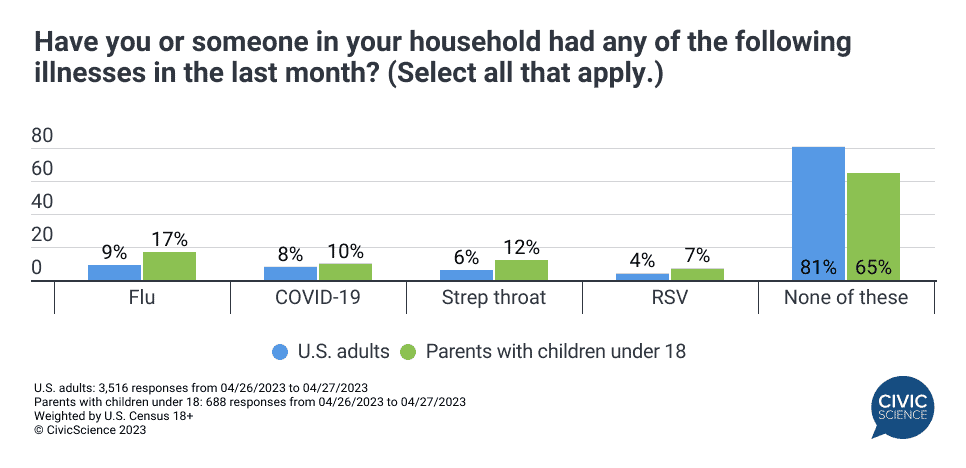
More awesomeness from the InsightStore:
- People in the Deep South are shopping online more than usual and other key insights from our latest Apparel and E-Commerce Industry Report;
- Intent to see live concerts and music festivals is up appreciably over last year and Ticketmaster remains king;
- Shoppers had trouble finding things they wanted during Wayfair’s Way Day event;
- Red Bull drinkers spend a ton of time in the car and four other nuggets.
And the most popular questions this week:
- Have you ever sneaked alcohol into an event?
- To what extent do you agree or disagree that it’s possible for anyone to “evolve” in a positive way?
- Do you think it’s acceptable or unacceptable for employers to demand that employees be on call 24/7 while not at work?
- Would you accept an invitation to a friend’s wedding if your significant other was not invited?
- How concerned are you about aging?
Answer Key: Of course; Very much agree; Only if the expectation was crystal clear when they were hired; No “friend” would actually do that, so no; Not even a little.
Hoping you’re well.


